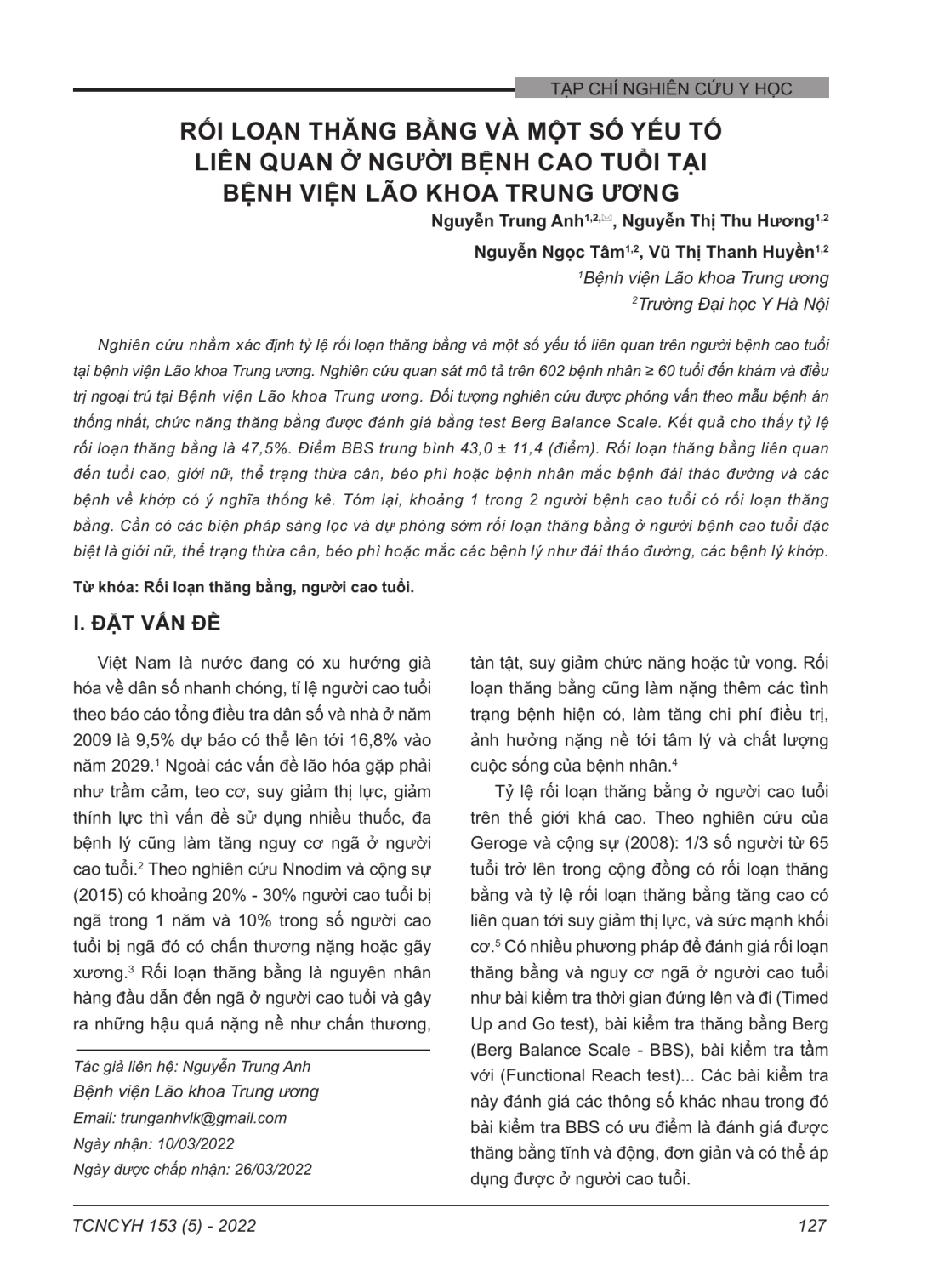
Nghiên cứu nhằm xác định tỷ lệ rối loạn thăng bằng và một số yếu tố liên quan trên người bệnh cao tuổi tại bệnh viện Lão khoa Trung ương. Nghiên cứu quan sát mô tả trên 602 bệnh nhân ≥ 60 tuổi đến khám và điều trị ngoại trú tại Bệnh viện Lão khoa Trung ương. Đối tượng nghiên cứu được phỏng vấn theo mẫu bệnh án thống nhất, chức năng thăng bằng được đánh giá bằng test Berg Balance Scale. Kết quả cho thấy tỷ lệ rối loạn thăng bằng là 47,5%. Điểm BBS trung bình 43,0 ± 11,4 (điểm). Rối loạn thăng bằng liên quan đến tuổi cao, giới nữ, thể trạng thừa cân, béo phì hoặc bệnh nhân mắc bệnh đái tháo đường và các bệnh về khớp có ý nghĩa thống kê. Tóm lại, khoảng 1 trong 2 người bệnh cao tuổi có rối loạn thăng bằng. Cần có các biện pháp sàng lọc và dự phòng sớm rối loạn thăng bằng ở người bệnh cao tuổi đặc biệt là giới nữ, thể trạng thừa cân, béo phì hoặc mắc các bệnh lý như đái tháo đường, các bệnh lý khớp.
The purpose of this study was to identify the prevalence of balance disorders and related factors in elderly patients at the National Geriatric Hospital. A cross-sectional study of 602 patients aged 60 years and older admitted to the Outpatient Department of the National Geriatric Hospital. Participants were interviewed based on a designed questionnaire. Balance function was assessed using the Berg Balance Scale (BBS). The results showed that the rate of balance disorder was 47.5% with an average BBS score of 43.0 ± 11.4 (point). Balance disorder is related to advanced age, gender (female), overweight or obesity or patients with diabetes and joint diseases with statistically significant p < 0.05. In summary, about 1 in 2 elderly study patients has a balance disorder. Early screening for the elderly, especially women, the obese or overweight, diabetic and joint disease patients is necessary to prevent balance disorder.
- Đăng nhập để gửi ý kiến
